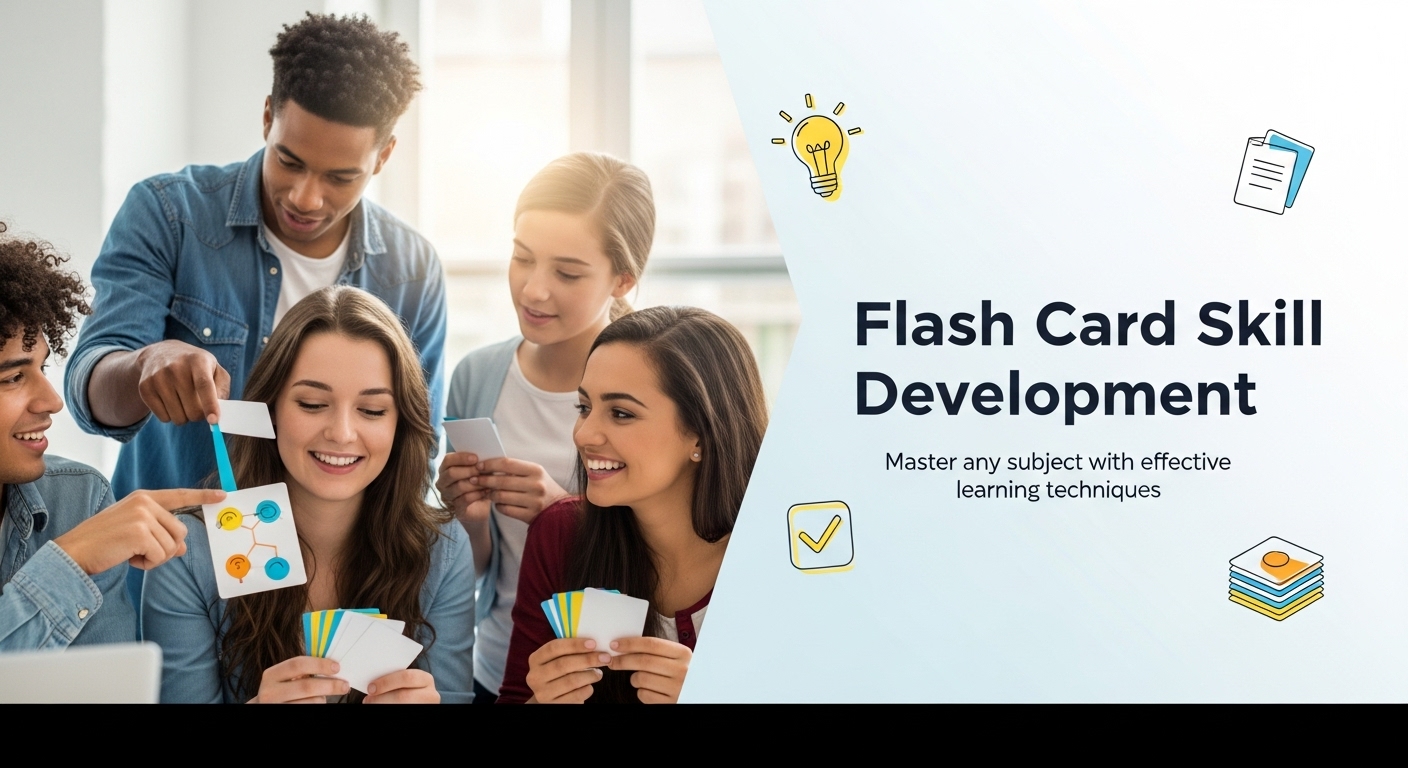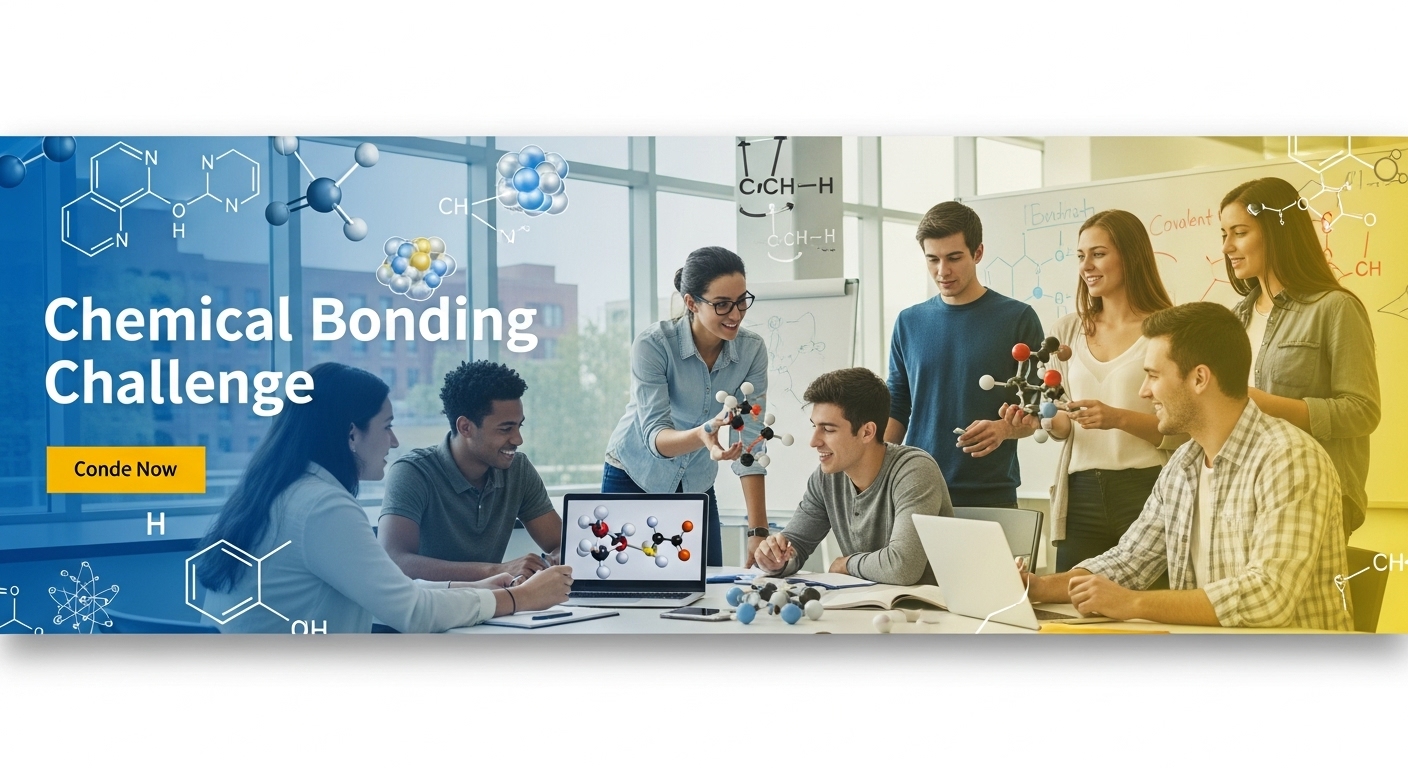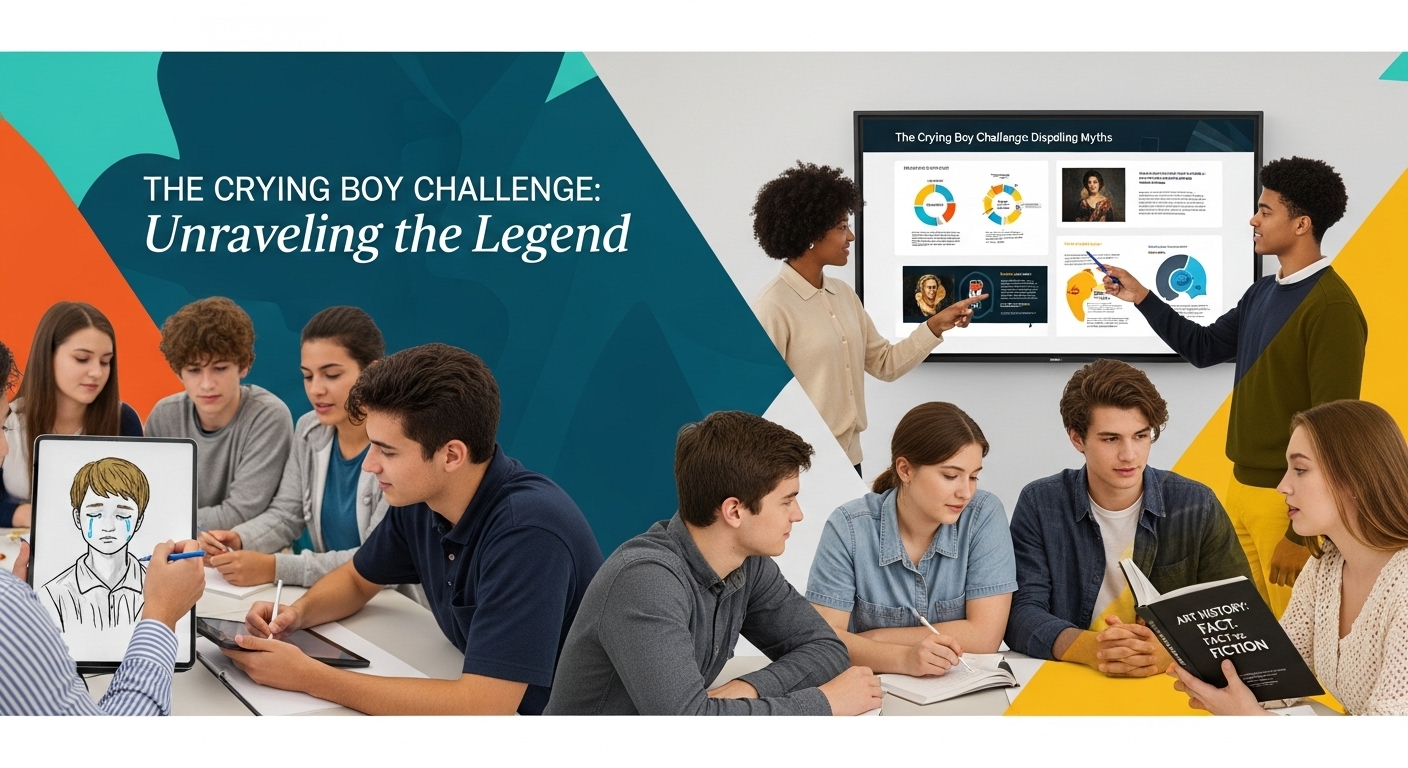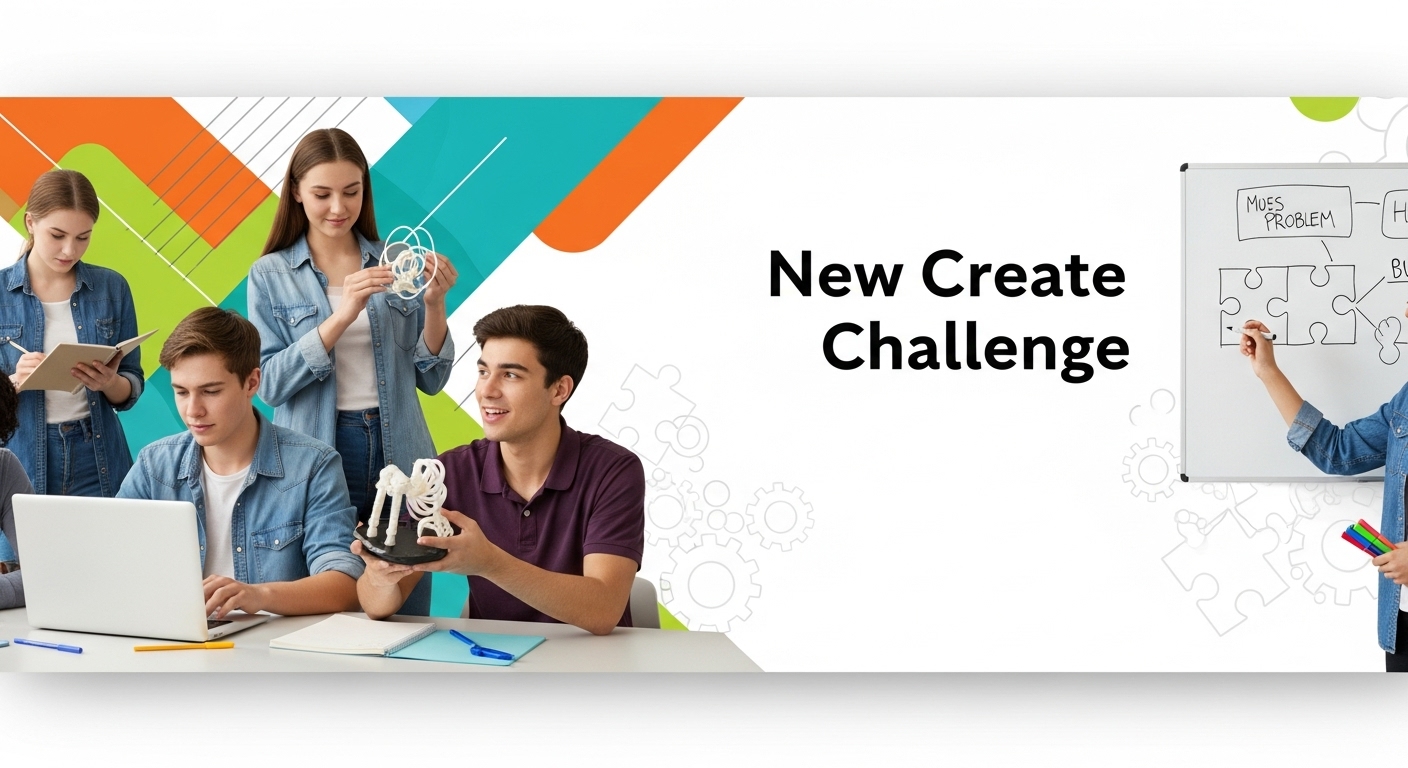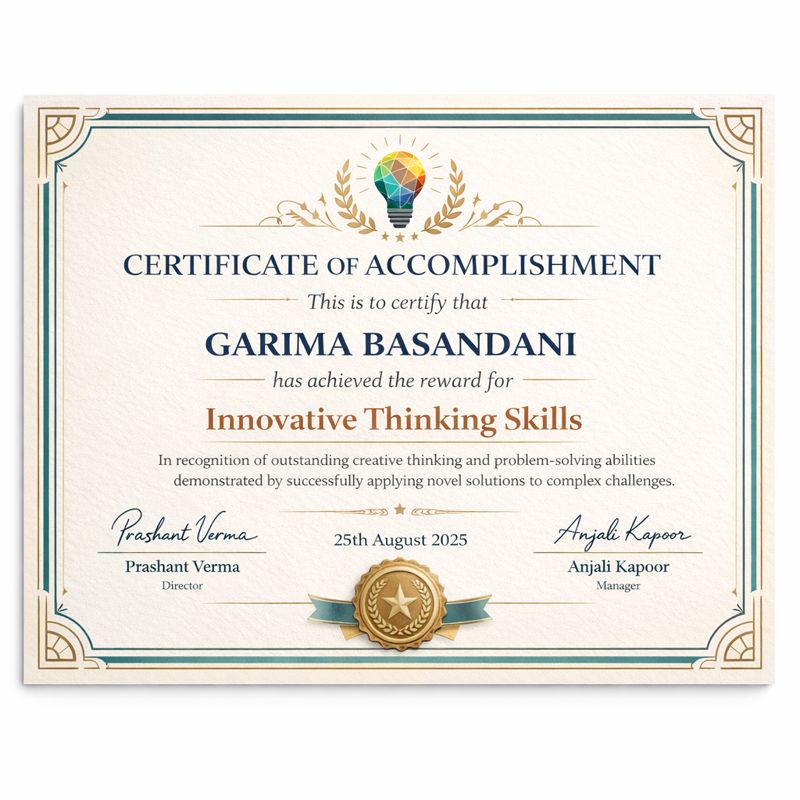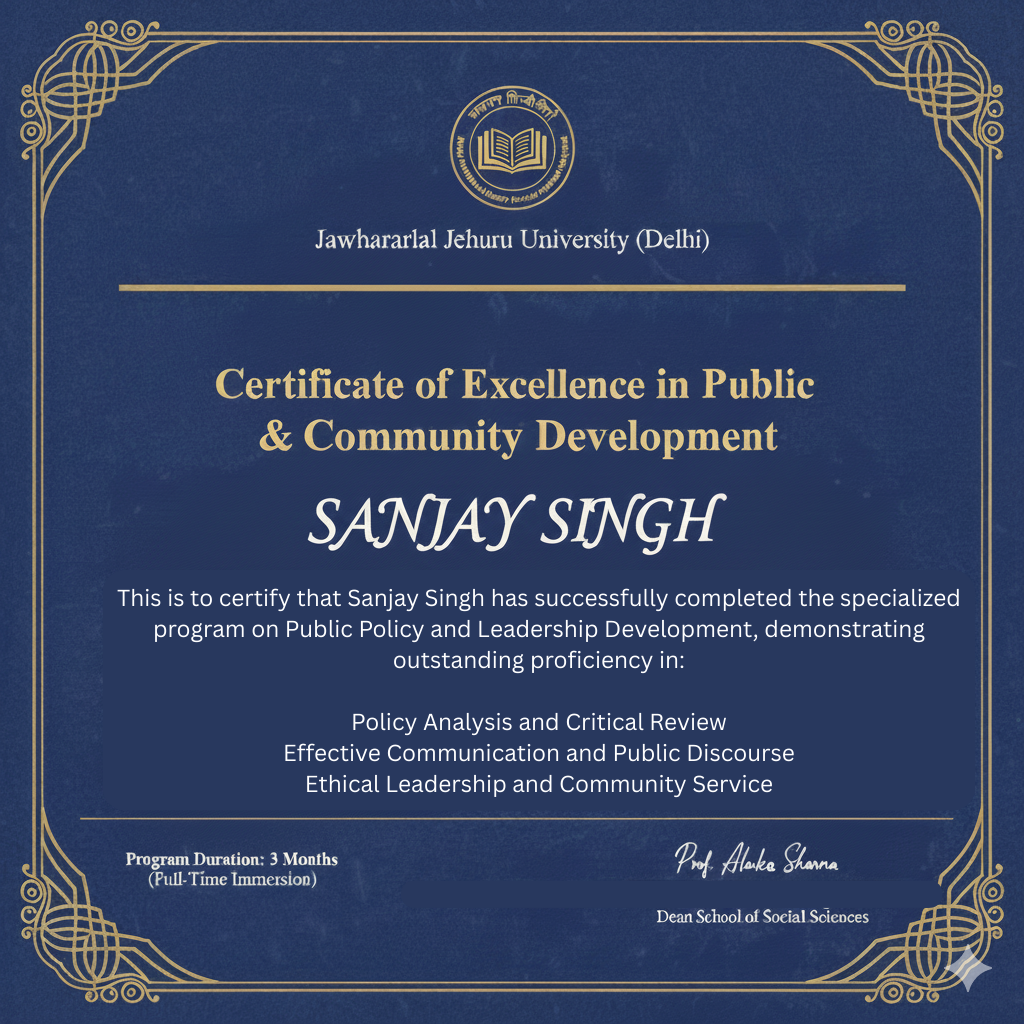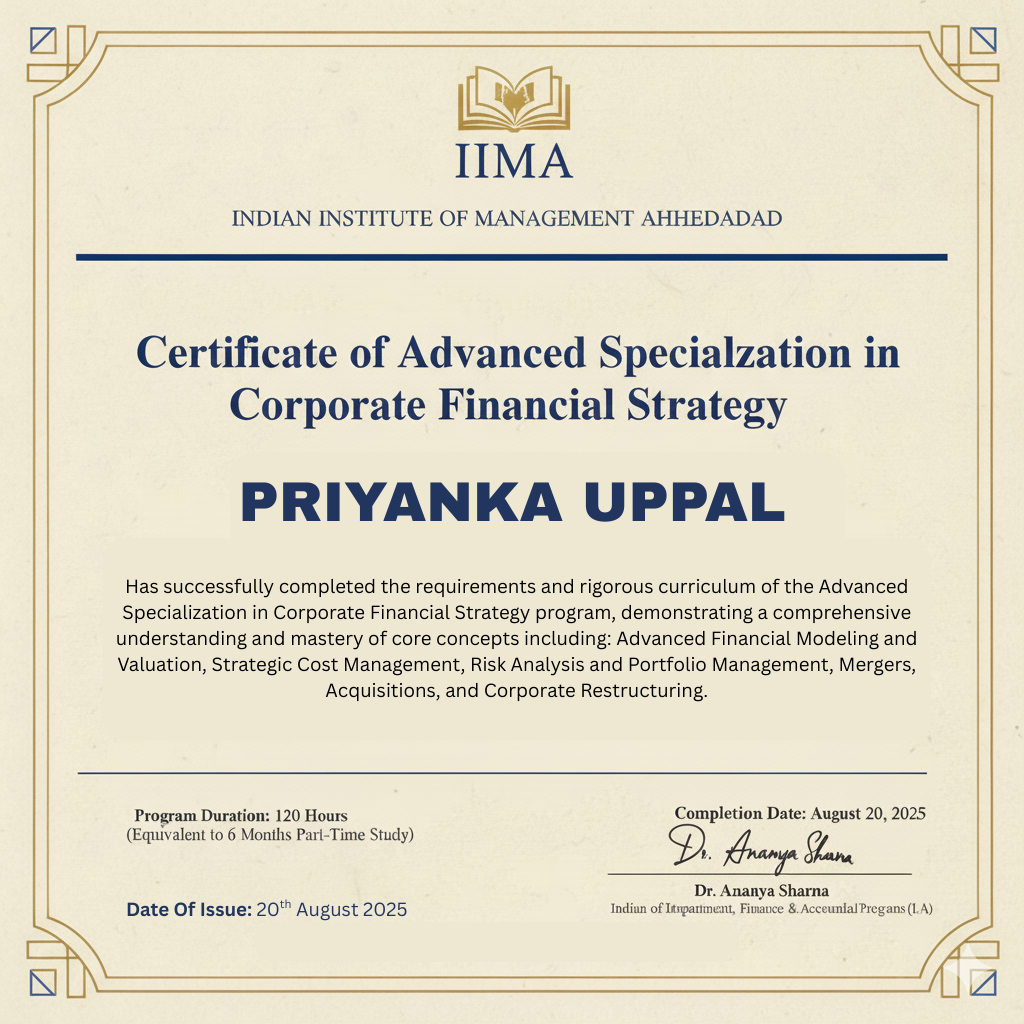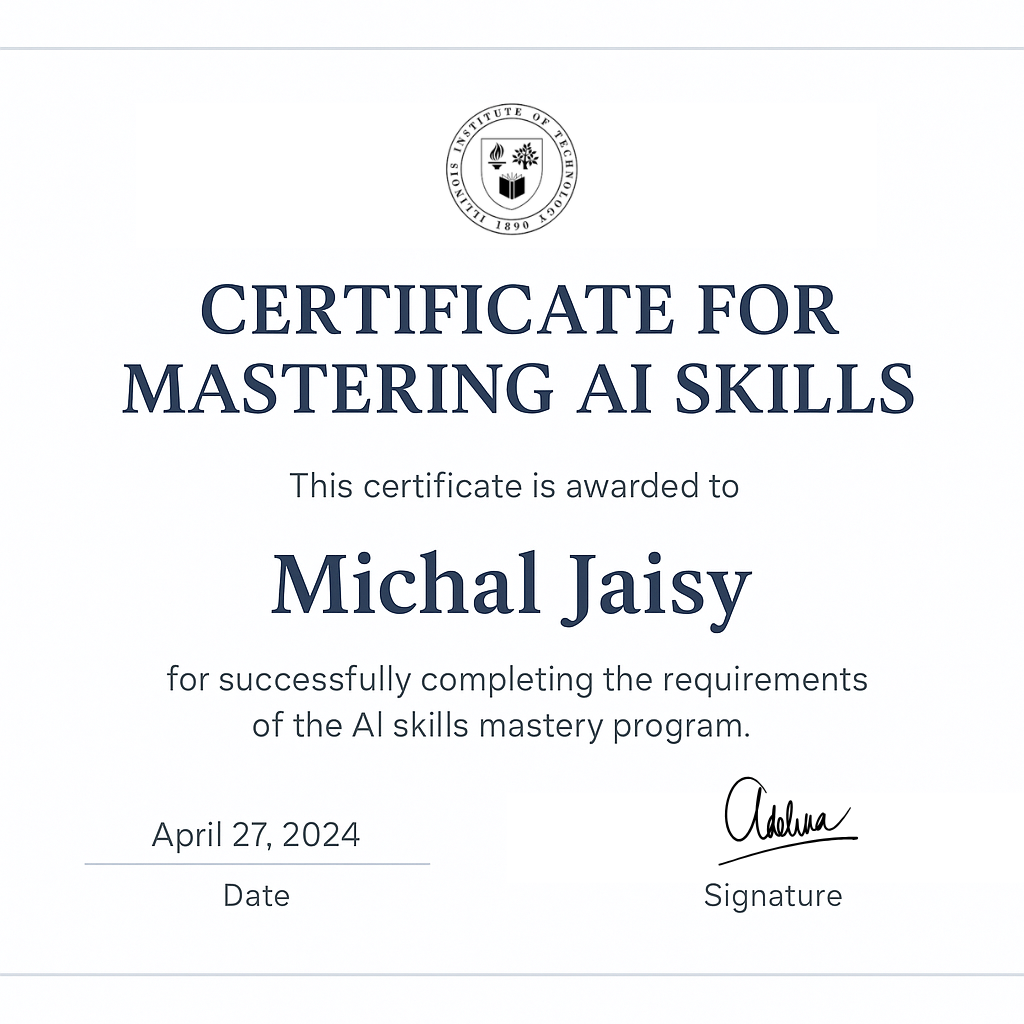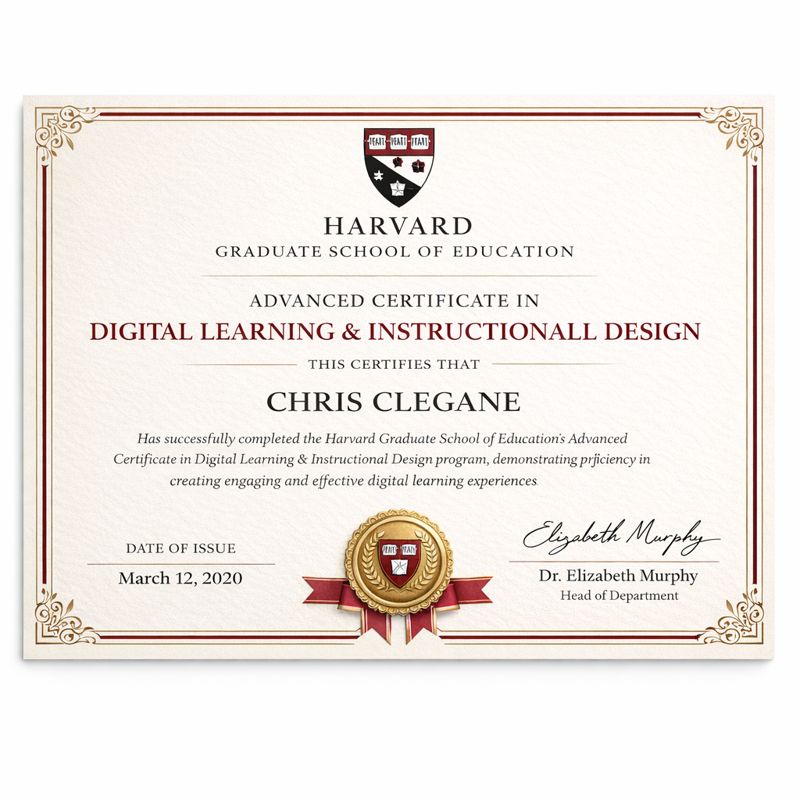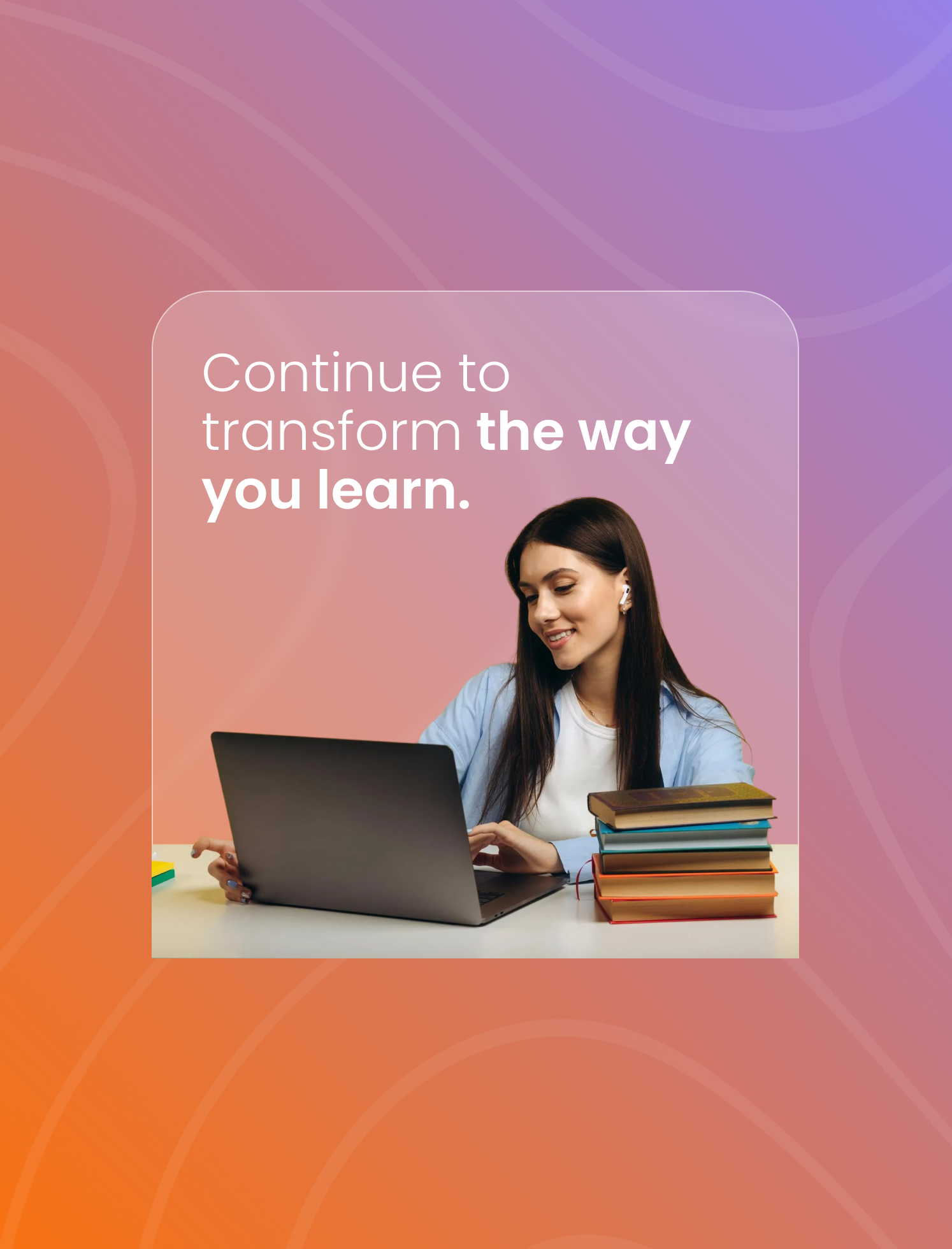- Home
- Solutions
- Join Community
- Methodology
-
Pricing
- More
Community
 Rajat Pandey
Rajat Pandey
After completing a full RAR cycle, what is the best way to judge your learning progress?
Answers. By comparing my initial understanding with what I learned after the reflection and activity stages. Recommended.You have a great understanding of self-evaluation. Comparing your initial knowledge with what you've learned is the key to seeing real progress. A great way to visualize this is by creating a quick 'concept map' or a simple list of key terms before you start a topic. After you finish, create a new one and compare them. You'll be able to see exactly how much your understanding has grown.
 Rahul Rajeev
Rahul Rajeev
Before starting a big chapter for an exam, what is the most helpful first step to take?
Answers. Break the chapter into smaller parts and make a simple study schedule. Recommended.You've correctly identified that breaking down a large task is a great first step. To enhance this skill, try adding specific goals and time estimates to each smaller part. For example, instead of just 'Study Section 1,' plan to 'Summarize Section 1's key concepts in 30 minutes.' This makes your plan more actionable and helps you track your progress.
 Abhishek Panwar
Abhishek Panwar
When planning to summarize complex data like this for a team project, what is the most crucial first step?
Answers. Align with the team on the summary's objective and the key message to convey. Recommended.Effective planning starts with a clear goal. Before tackling a complex task, take a moment to define what you want to achieve. Ask yourself: 'What is the main objective of this summary?' and 'Who is the audience?' This simple step provides clear direction and makes the entire process more efficient.
 Pankaj Joshi
Pankaj Joshi
While tracing the map from 'Laws of Reflection' to 'Image Formation,' how can you best monitor your comprehension?
Answers. Pause and try to explain in your own words how the laws result in the image characteristics. Recommended.Excellent work! You correctly identified that pausing to explain a concept in your own words is a powerful way to check your understanding. To build on this strength, try the 'Feynman Technique': pretend you are teaching the concept to a friend. This will quickly highlight any areas you're unsure about and solidify what you already know.
 Pankaj Joshi
Pankaj Joshi
When approaching this concept map for the first time, what is the most effective way to plan your study session?
Answers. First, get an overview by looking at the main sections like 'Fundamentals' and 'Applications' to understand the structure. Recommended.A great plan sets you up for success. Instead of reading everything from top to bottom, try a '3-minute preview' next time. Spend a few moments scanning the main headings and structure of the material first. This creates a mental roadmap, helping you see the big picture and making your study session more focused and effective.
 Learner Meta
Learner Meta
The text mentions the AI suggests 'concept mapping' and 'summarization'. Knowing your goal is to prepare for an exam, when would summarization be a more effective strategy than concept mapping?
Answers. When you need to create a concise, text-based document of the main points for quick review before the exam. Recommended.Your answer suggests a slight mix-up between the best uses for these two powerful strategies. Remember this simple distinction: Use summarization (Option A) when you need to create a condensed, text-based document of key points for quick review. Use concept mapping when your goal is to visually understand and explore the connections *between* different ideas. Choosing the right tool for the job makes your learning much more efficient.
 Rahul Mehta
Rahul Mehta
Before preparing a presentation for a job interview, what is the most effective first step when using the structuring and outlining method?
Answers. Decide on the main sections of your presentation first, like 'Introduction', 'Key Skills', and 'Conclusion'. Recommended.While gathering facts is important, a great planning habit is to first create a 'skeleton' of your presentation. Before diving into details, try identifying 3-5 main sections (like Introduction, Your Experience, Why This Company, Conclusion). This 'top-down' approach ensures all your facts and data have a logical home and support your main message.
 Mentor Rahul
Mentor Rahul
Beyond creating a basic outline, what specific techniques do you use to make your structures more memorable or easier to understand, such as using visual cues, mind maps, or color-coding?
Answers.To make my outlines more dynamic and memorable, I incorporate visual and organizational strategies that go beyond simple text, engaging different parts of my brain.
- I use mind mapping tools to visually connect concepts, which helps me see the 'big picture' relationships.
- I apply a consistent color-coding system: one color for main topics, another for details, and a third for questions or areas of confusion.
- I add simple icons or symbols next to key terms to serve as quick visual triggers for recall.
These techniques transform the outline from a static document into an active learning tool, making the information easier to process and retain.
Recommended.Start small with one new technique. For your next outline, try using just two different colors—one for main headings and another for supporting details. This simple visual distinction can make your structure much clearer and easier to remember.
 Mentor Rahul
Mentor Rahul
Before you begin creating an outline for a new topic, what key information or main ideas do you prioritize to ensure your structure is logical and comprehensive?
Answers.To ensure a logical and comprehensive outline, I first focus on defining the primary learning objective or the core question the topic addresses. This provides a clear direction.
- I identify the foundational concepts or 'big ideas' that must be understood before anything else.
- I list key terminology and definitions that will be used throughout the topic.
- I consider the end goal—what should someone know or be able to do after reviewing this material?
Prioritizing these elements helps create a purposeful framework rather than just a list of facts, ensuring the structure is built on a solid foundation.
Recommended.Effective planning starts with a single question: 'What is the main goal of this task?' Before you begin, try writing down the primary objective in one sentence. This simple act can provide clarity and help you identify the most important ideas to focus on.
 Mentor Rahul
Mentor Rahul
While you were developing this multi-level outline, how did you check to ensure that each section flowed logically into the next and that you weren't missing any critical information?
Answers.To ensure the outline was coherent and complete, I implemented a continuous monitoring process. This involved regular check-ins and cross-referencing to maintain alignment with my initial goals.
- I performed "transition checks" at the end of each major section, summarizing its key takeaway and explicitly stating how it set the stage for the next part.
- I maintained a running "completeness checklist" based on industry-standard templates, ticking off each required data point as I incorporated it into the outline.
- Periodically, I would step back and read the outline headings aloud, treating it like a table of contents to check for a natural, story-like progression.
This combination of transition checks, a completeness checklist, and periodic high-level reviews helped me catch gaps and logical inconsistencies early in the process.
Recommended.You have an excellent self-monitoring system using checklists and perspective-taking. To further strengthen this, consider the 'teach-back' method. Briefly explain the flow of your outline to a colleague or friend. If you can explain it clearly and they can follow the logic, it's a great sign that your structure is sound. This verbal check can reveal gaps that are harder to spot on paper.
 Diogo Forlan
Diogo Forlan
Students often treat learning methods like tools to use randomly, but the real growth comes from choosing them with intention. When you know why you are using a method like mind mapping for clarity or practice questions for recall, you learn smarter, not harder. Tracking this process helps you understand your strengths, and that’s exactly where YMetaconnect adds value.
 Vidisha Robert
Vidisha Robert
Which method has helped you understand concepts, not just remember them?

 Michal Jaisy
Michal Jaisy
The RAR cycle helped me the most. Reviewing, acting, and then reflecting force me to think beyond memorizing. YMetaconnect makes it easier because the platform guides my reflection and shows where my understanding is shallow. Over time, I’ve become more aware of how I learn.
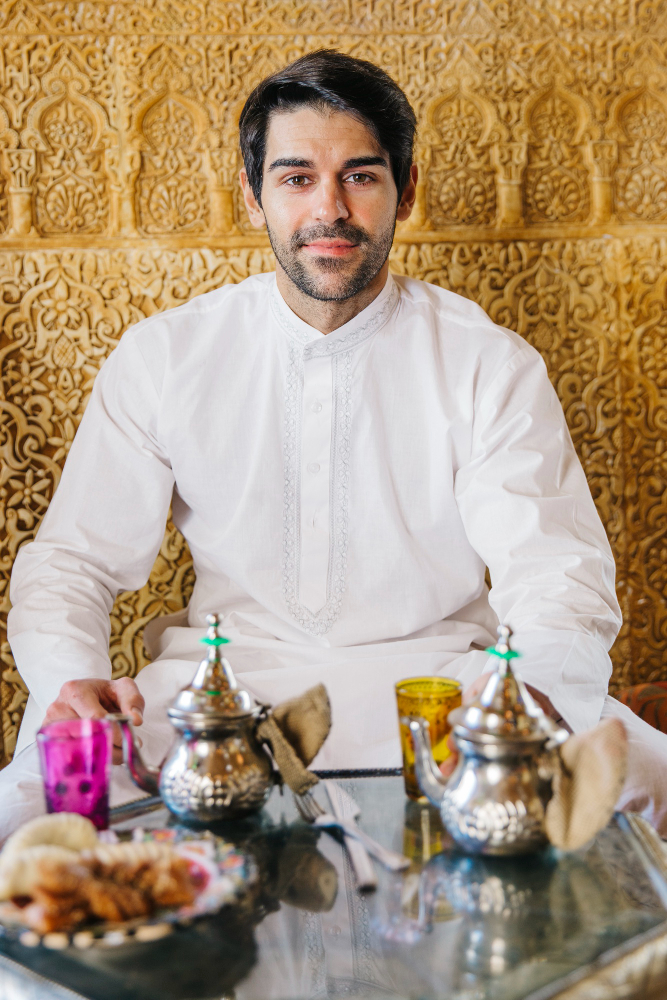 Sohail Iqbal
Sohail Iqbal
In your last study session, did you plan what you wanted to achieve, or did you start without a structure? How did it affect your learning quality?
 David Emy
David Emy
Honestly, I started without a plan, and I noticed I kept jumping between topics. When I plan even three small goals, my progress feels clearer and more intentional. It makes the session more focused, and I feel mentally lighter afterward.
 Rashmi Singh
Rashmi Singh
I use gridding to compare topics, but I still struggle to link them during revision. How can I make my grid more meaningful?
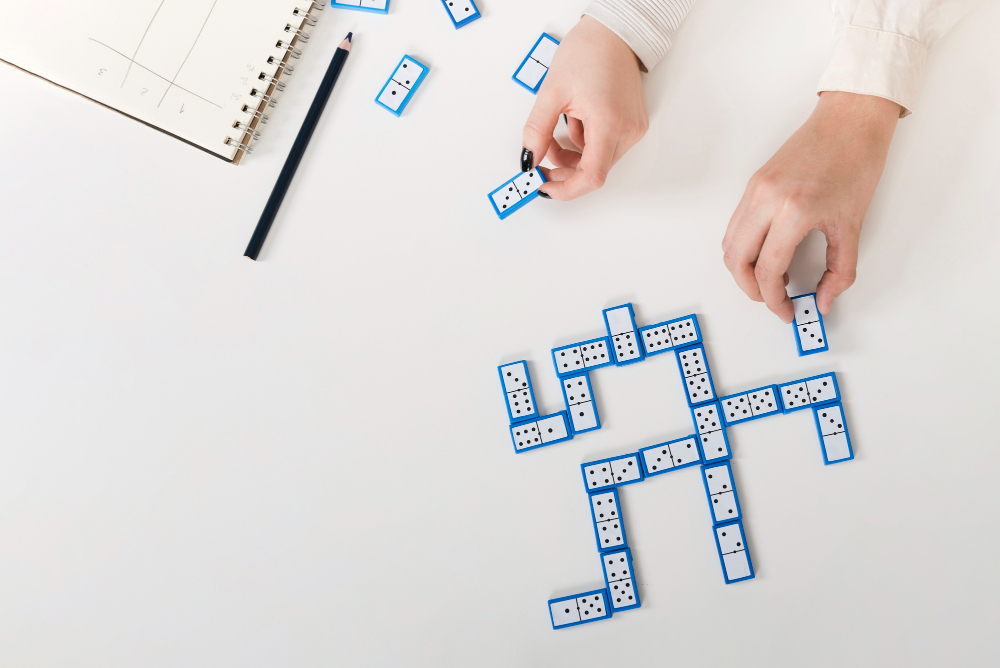
 Jenny Cyrus
Jenny Cyrus
The goal of gridding is not only to compare but also to reveal patterns. Try adding a small “Why does this matter?” column where you write one sentence about the significance of each row. This activates deeper thinking and connects ideas naturally. With practice, your grid becomes a story, not just a table.
 Sanjay Singh
Sanjay Singh
When I use passage mapping, I understand the text for the moment, but I forget the structure later. How can I make the mapped ideas stay longer in my mind?
 Abhishek Panwar
Abhishek Panwar
I realized that mapping alone is not enough; I have to revisit it after a few hours to make the structure stronger. When I redraw the passage map from memory, even if it’s imperfect, I notice what I missed.
This second round helps the flow stick in my mind. It feels more like building a mental picture, not just taking notes.
 Chris Clegane
Chris Clegane
Do you learn better when I reveal the ‘why’ behind a concept first, or the ‘how’?
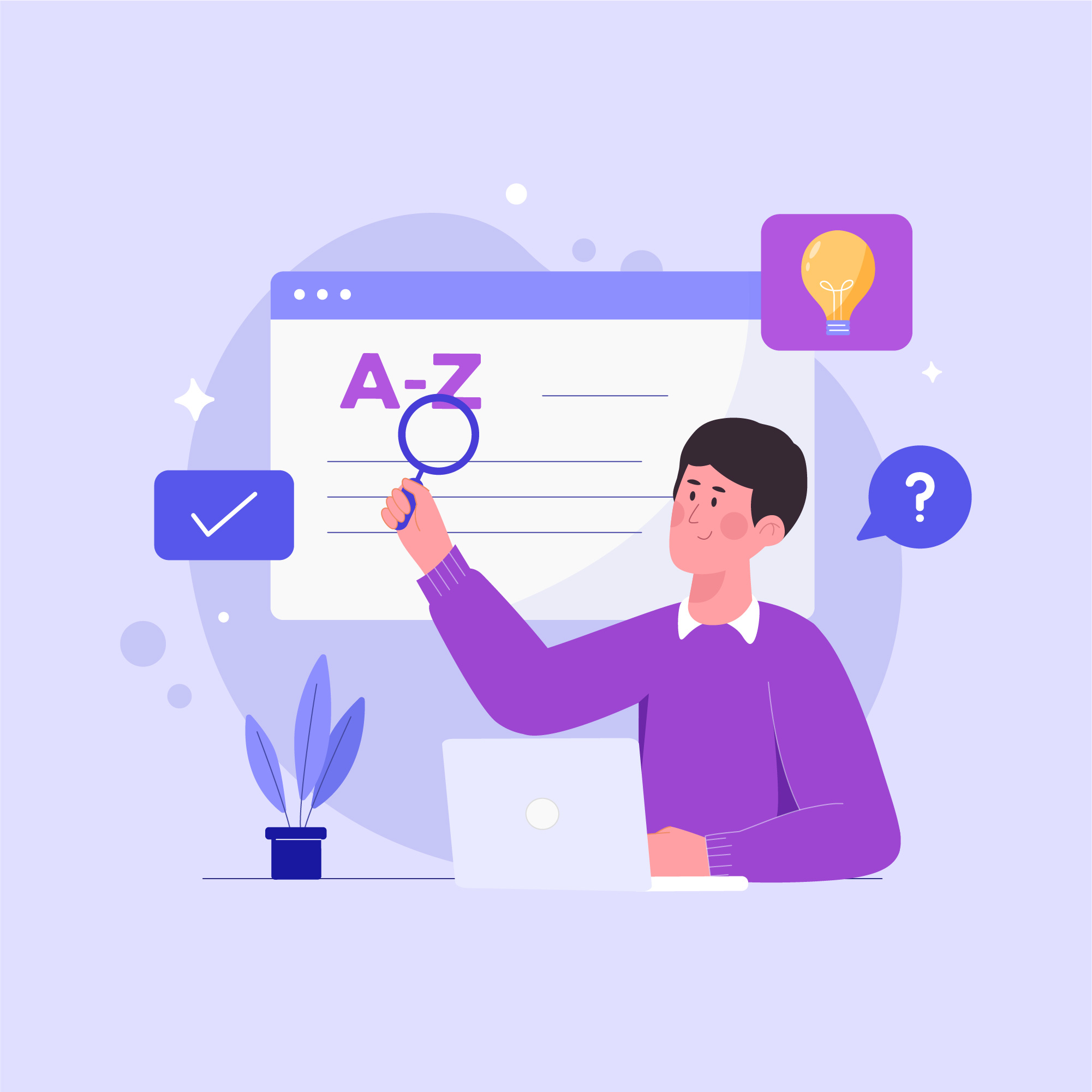
 Rahul Mehta
Rahul Mehta
I learn better when I understand the ‘why’ first because it gives my mind a purpose to hold onto. When the reason is clear, the steps feel meaningful instead of mechanical.
This is exactly what YMetaconnect encourages, starting with awareness before action, just like metacognition teaches us to notice our thinking. When I see the reason behind a concept, I stay more engaged and make fewer careless mistakes. It turns learning into something intentional, not just something I am told to follow.
 Ahmed Al Harthy
Ahmed Al Harthy
What do you wish I understood about your learning style that I haven’t noticed yet?
 Arvind Shekhawat
Arvind Shekhawat
I wish you would notice that I need a moment to process things before I respond. When ideas come too fast, I quietly fall behind even though I look attentive.
If you give me a small pause or let me explain things in my own words, I learn much better. I’m not slow; I just understand deeply when my mind gets space. That small adjustment changes how confident I feel in the whole process.
 Abhishek Panwar
Abhishek Panwar
What should I do when learning something new makes me feel like a beginner again in an uncomfortable way?

 Garima Basandani
Garima Basandani
Feeling like a beginner again can be uncomfortable because it exposes parts of you that haven’t been tested in a while. Instead of fighting that feeling, treat it as a sign that your mind is stretching in a good direction. Start with very small steps so the new skill feels friendly, not threatening. Over time, the discomfort fades and is replaced by a quiet confidence that you earned through steady practice.
 Rajat Pandey
Rajat Pandey
How do I know if I’m learning deeply or just skimming?
 Ahmed Al Harthy
Ahmed Al Harthy
Deep learning feels slower because your brain is actually processing, not rushing. You should be able to explain the idea, apply it, and spot where you get stuck. Skimming feels smooth but fades quickly. If your mind wrestles a little, it’s usually a sign of real understanding.
 Katy Jane
Katy Jane
When you’re stuck, do you freeze, rush, or avoid, and what does that reaction tell you?

 Priyanka Uppal
Priyanka Uppal
When I get stuck, I usually freeze because my mind feels overwhelmed. It shows me that my struggle is more about fear of making mistakes than the topic itself. I notice that rushing or avoiding only makes the block worse.
When I take a moment to pause and break the problem into smaller steps, I start seeing solutions. This reaction reminds me that being stuck is a natural part of learning, not a failure.
 Garima Basandani
Garima Basandani
 Sanjay Singh
Sanjay Singh
 Priyanka Uppal
Priyanka Uppal
Data Not Found


 Learner
Learner Mentor
Mentor Organisation
Organisation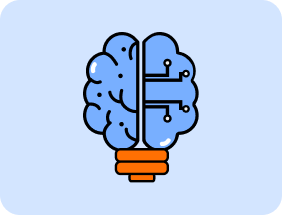
 Learner
Learner Mentor
Mentor Organisation
Organisation


 06:30 PM
-
07:31 PM
06:30 PM
-
07:31 PM
 27-11-2025
-
29-11-2025
27-11-2025
-
29-11-2025



 Comment
Comment

